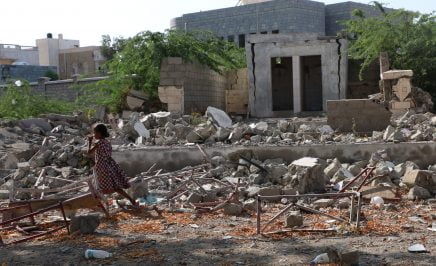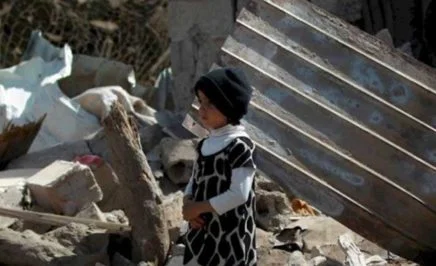Responding to the news that Yemeni forces backed by a Saudi Arabia-led coalition have launched an offensive on the Yemeni port city of Hodeidah, Amnesty International’s Middle East Research Director Lynn Malouf said:
“The assault on Hodeidah could have a devastating impact for hundreds of thousands of civilians – not just in the city but throughout Yemen.
“With an estimated 600,000 people living in and around Hodeidah, all sides to the conflict must take all feasible precautions to ensure that the civilian population is protected.
“Equally vital is that the Saudi Arabia-led coalition and Huthi forces ensure the flow of aid and essential goods isn’t impeded in any way, as millions of people remain at risk of famine across the country.
“Hodeidah’s port is crucial to a country that is 80% dependent on imports to meet basic necessities. Cutting off this crucial supply line would further exacerbate what is already the world’s worst humanitarian crisis.
“During the past three years of fighting in Yemen, all parties to the conflict have disregarded their obligations under international humanitarian law, consistently carrying out unlawful attacks that have killed or injured civilians. A repeat of such violations in Hodeidah would put thousands of lives at risk and must be avoided at all costs.”
Background
Research carried out by Amnesty International prior to today’s military operation, due to be published soon, shows that the Saudi Arabia-led coalition had been restricting or severely delaying commercial imports to the Red Sea ports, despite announcing in November 2017 that it had lifted its blockade.
The organisation has also documented how the Huthi de facto authorities have obstructed the movement of humanitarian aid within the country through its permit system, fragmented approach and, in some cases, extortion. These restrictions and obstacles have compounded the already dire humanitarian situation and violate international law.
Amnesty International is calling on all sides to abide by international humanitarian law, including by taking precautions to minimise civilian casualties and the destruction of homes and civilian infrastructure.




